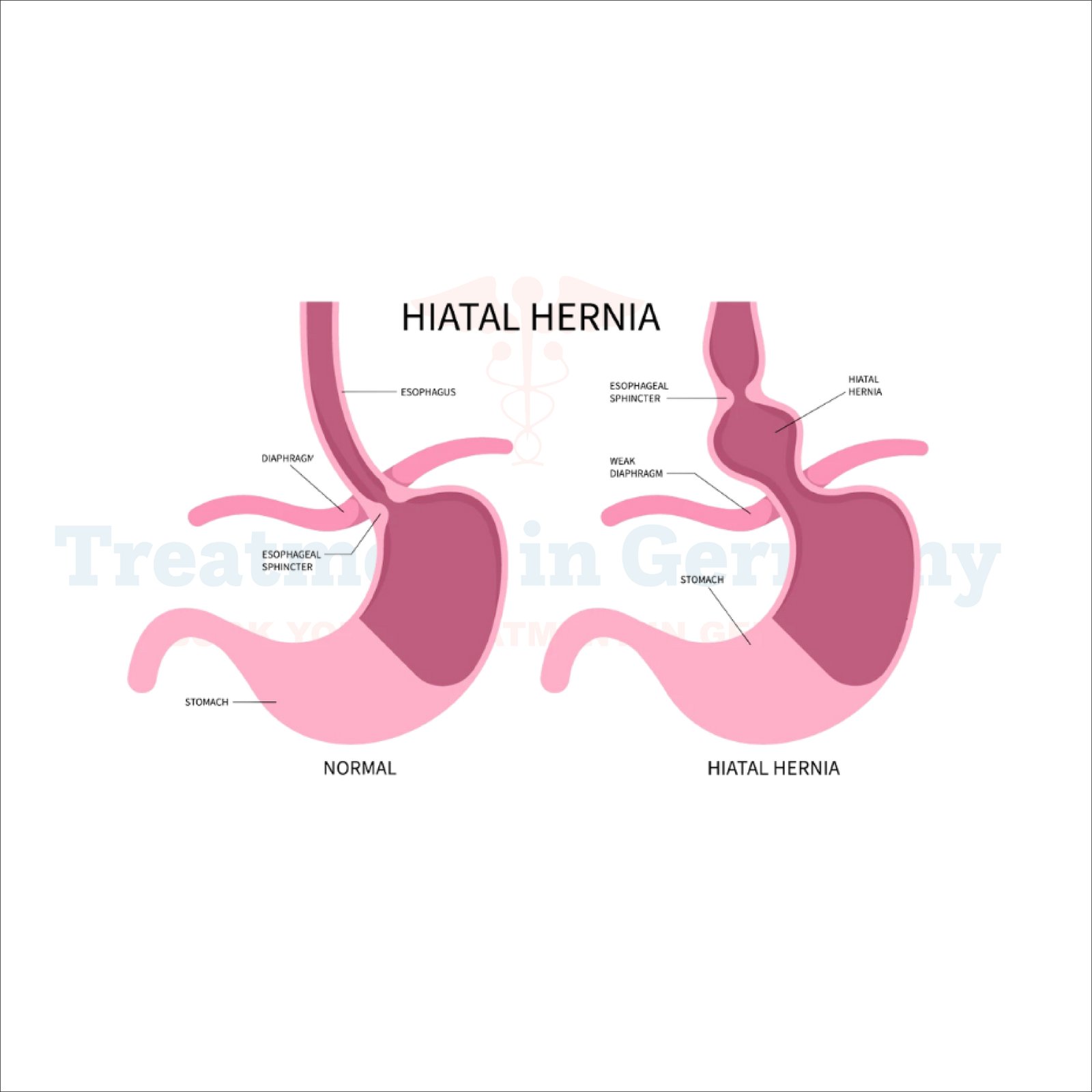What is Hiatal Hernia?
Hiatal Hernia is a condition where a portion of the stomach protrudes through the diaphragm into the chest cavity. The hiatus is an opening in the diaphragm through which the esophagus passes before connecting to the stomach.
When this opening becomes enlarged or weakened, it allows the stomach to bulge upward into the chest, leading to a Hiatal Hernia.
Side effects of Hiatal Hernia
The most common symptoms associated with Hiatal Hernia include heartburn, chest pain, difficulty swallowing, regurgitation of food or liquids, and acid reflux. Some individuals may also experience symptoms such as belching, nausea, and a feeling of fullness in the chest or abdomen.
How is Hiatal Hernia diagnosed?
Diagnosing Hiatal Hernia typically involves a combination of medical history review, physical examination, and diagnostic tests. Your healthcare provider may perform an upper endoscopy to visually inspect the esophagus, stomach,and upper part of the small intestine.
Other diagnostic tests such as barium swallow or esophageal manometry may also be conducted to evaluate the function and structure of the esophagus and stomach.
Potential treatments of Hiatal Hernia
Treatment options for Hiatal Hernia depend on the severity of symptoms and the size of the hernia. Mild cases may be managed with lifestyle changes and over-the-counter medications to alleviate symptoms.
These lifestyle modifications may include dietary changes, weight loss, avoiding large meals, and elevating the head of the bed while sleeping.
👉 Contact us for further information and receive acomplimentary consultation.


.webp)
 (1).webp)

.webp)
 (1).webp)


.webp)
 (1).webp)

.webp)
 (1).webp)
